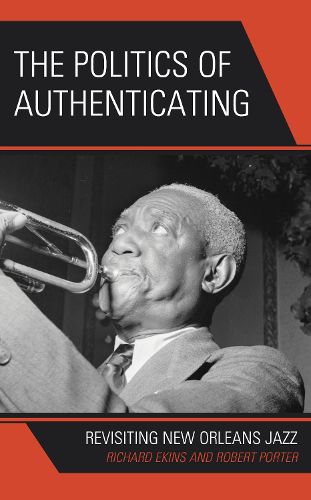Readings Newsletter
Become a Readings Member to make your shopping experience even easier.
Sign in or sign up for free!
You’re not far away from qualifying for FREE standard shipping within Australia
You’ve qualified for FREE standard shipping within Australia
The cart is loading…






The Politics of Authenticating: Revisiting New Orleans Jazz sets forth an entirely new approach to the study of authenticity, based not upon a search for finding the 'true' meaning of the concept or 'unmasking' its claims. Rather, it details a grounded theory of 'authenticating' as a basic socio-political process, important in understanding the origins, development and consequences of competing knowledge claims in diverse areas of human experience and activity over time and place. The book is part jazz historiography, part autoethnography, and part memoir. It details Richard Ekins revisiting of the quest for authenticity in the social worlds of international New Orleans revivalist jazz from the early 1960s onwards, from his standpoint as a social constructionist social scientist and cultural theorist. The book grew out of a series of long, detailed conversations between Ekins and his interlocutor (Robert Porter) and captures the energy and dynamism of these exchanges in the writing of the text, providing what the authors call a 'riff methodology' that might be drawn on by other scholars concerned to write books that revisit aspects of their personal and professional lives.
$9.00 standard shipping within Australia
FREE standard shipping within Australia for orders over $100.00
Express & International shipping calculated at checkout
The Politics of Authenticating: Revisiting New Orleans Jazz sets forth an entirely new approach to the study of authenticity, based not upon a search for finding the 'true' meaning of the concept or 'unmasking' its claims. Rather, it details a grounded theory of 'authenticating' as a basic socio-political process, important in understanding the origins, development and consequences of competing knowledge claims in diverse areas of human experience and activity over time and place. The book is part jazz historiography, part autoethnography, and part memoir. It details Richard Ekins revisiting of the quest for authenticity in the social worlds of international New Orleans revivalist jazz from the early 1960s onwards, from his standpoint as a social constructionist social scientist and cultural theorist. The book grew out of a series of long, detailed conversations between Ekins and his interlocutor (Robert Porter) and captures the energy and dynamism of these exchanges in the writing of the text, providing what the authors call a 'riff methodology' that might be drawn on by other scholars concerned to write books that revisit aspects of their personal and professional lives.